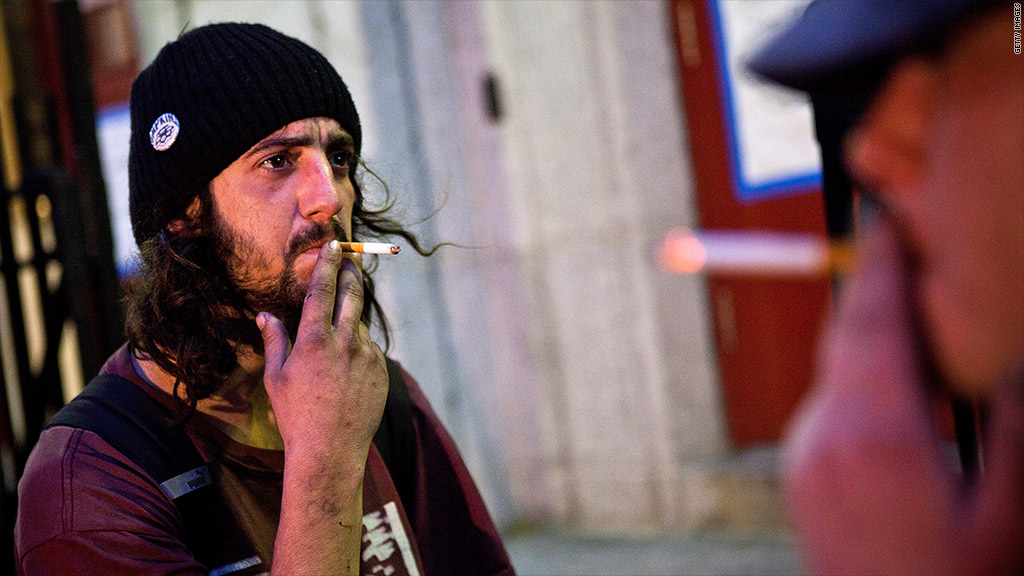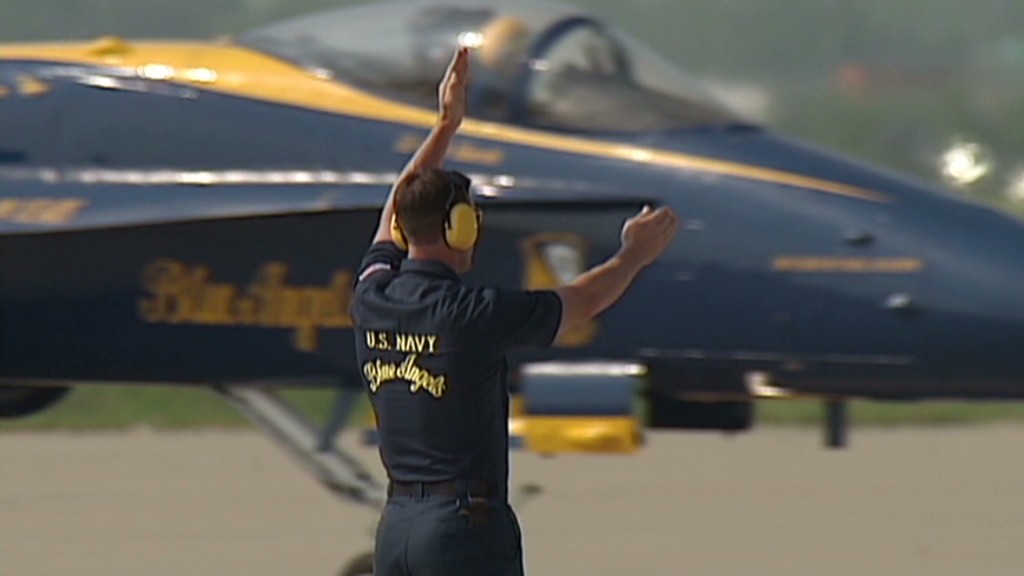
President's Obama's call for a 94-cent-a-pack hike on federal cigarette taxes to fund early childhood education programs is controversial.
Anti-smoking groups applaud the proposal, but some tax experts and tobacco companies are against it.
The case for the tax. The tax is being presented as way to fund education and reduce smoking rates. It would raise roughly $78 billion over 10 years.
"The proposed tobacco tax increase would have substantial public health benefits, particularly for young Americans," the president's budget read. "Researchers have found that raising taxes on cigarettes significantly reduces consumption, with especially large effects on youth smoking."
After a 62-cent-a-pack tax hike was passed in 2009, cigarette sales dropped by 10%, according to the Campaign for Tobacco-Free Kids.
Related: What's in Obama's budget
There's also little doubt that fewer people smoking is a good thing for society. Costs related to smoking amount to $193 billion a year in both direct medical payments and lost productivity, according to a Centers for Disease Control study done during the early part of the last decade. Smoking kills about 443,000 people each year.
Passing the tax "would be a giant step toward winning the fight against tobacco, the nation's number one cause of preventable death," Matthew Myers, president of the Campaign for Tobacco-Free Kids, said in a statement.
Why it may be a bad idea. The biggest argument against the tax is that it will fund early childhood education on the backs of the poor. Not only is the tax not progressive - it does not go up the more money one makes -- but a higher percent of smokers are middle or low income.
The median household income for a smoker in 2011 was $27,700 compared to $45,761 for nonsmokers, according to Reynolds American (RAI), a cigarette maker which is, unsurprisingly, against the tax.
Nearly half of all smokers had a household income of less than $25,000 a year. Meanwhile, under 15% of smokers had a household income over $75,000.
"The idea of increasing taxes on low- to middle-income Americans at this time is ludicrous," Bryan Hatchell, a spokesman for Reynolds American, said in a statement. "The effect of the payroll tax increase this year, along with higher gas and food prices, have hit hard millions of Americans who are simply trying to keep their heads above water financially."

Anti-smoking groups counter that the poor are especially vulnerable to smoking's ill effects, as they often lack healthcare and are less prepared financially to deal with an illness.
Cigarette taxes across the nation. Many smokers already pay a high tax rate for cigarettes. The current federal tax rate is $1.01 a pack. So Obama is proposing an increase to $1.95 a pack. But the taxes don't stop there.
Some states and municipalities have also used cigarette taxes as a cash cow for years. In New York City, the country's highest-tax area, combined state and local taxes add up to $5.85 a pack, according to the Campaign for Tobacco-Free Kids. In Manhattan, a pack of cigarettes can cost $14, while at an airport duty free shop they can be as low as $3 or $4 a pack.
Related: Obama's budget could hit Social Security payments for seniors
But the taxes are low in other states. In Missouri, state taxes are just 17 cents a pack. The average price of a pack of cigarettes nationwide is $6, with taxes making up $2.49 of that.
Some economists question how wise it is to fund what will presumably be a long term program -- early childhood education -- with revenue that will likely fall over time. About 20% of Americans smoke, a number that has dropped considerably over the past several decades. The tax itself is specifically designed to get people to stop buying cigarettes.
Others say that while the tax won't be too much of a burden on the overall economy, it will hit smokers and those that work in the industry hard. They say the president could raise far more money by focusing on spending cuts.
"It's excellent politics, but it doesn't make good economics," said William McBride, chief economist at the Tax Foundation, a think tank that advocates for lower taxes.


